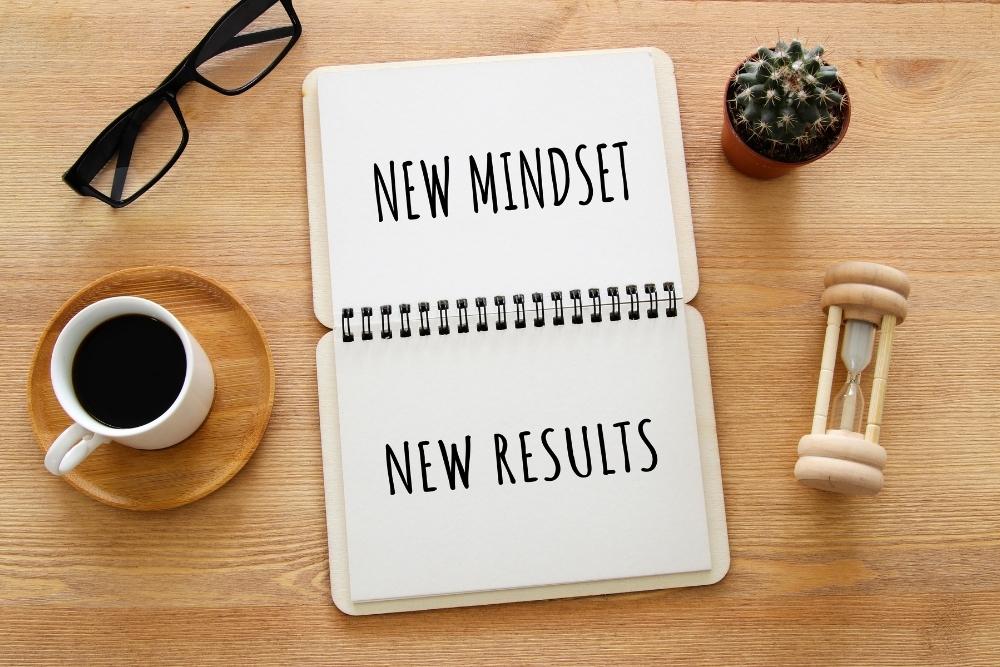

Whether you’re starting out and looking to make strides in the coaching business world, or you’re an experienced coach striving to up-level your coaching game, this blog post is your roadmap to success. Together we will explore the power of coaching tools & how they can enhance your skills, provide better outcomes for your clients, & help you build a thriving coaching business.
Coaching tools are the hidden gems that drive many successful businesses, but what exactly are they, and why are they essential on your coaching journey?
These versatile resources, from assessments to templates, form the backbone of impactful coaching sessions, providing both structure and a clear path toward achieving personal and professional goals.
In this exploration, we’ll not only demystify coaching tools but also uncover the various types that can elevate your coaching services to new heights.
At the heart of every effective coaching business are tools. But what exactly are they, and why are they essential?
Tools encompass a wide range of resources, including assessments, worksheets, questionnaires, and templates, designed to facilitate meaningful interactions between coaches and clients.
They play a pivotal role in complementing your coaching skills and strengthening the coaching experience for both parties.

They come in various forms, each serving a unique purpose.
Let’s dive into some popular tools and discover how they can benefit you:
Wheel of Life:
This visual tool helps clients assess and balance different areas of their lives, such as career, relationships, health, and personal development. It provides a snapshot of their current satisfaction levels in each area and helps identify areas for improvement. You can grab a FREE copy of this game-changing tool here!
SMART Goals Worksheet:
An essential tool for setting Specific, Measurable, Achievable, Relevant, and Time-bound goals with clients. It ensures that goals are well-defined and actionable.
Journaling prompts are thought-provoking questions and prompts that encourage clients to reflect on their thoughts, feelings, and experiences. Journaling can lead to self-discovery, increased self-awareness, and insights into self-improvement.

SWOT Analysis:
Coaches often use this tool to evaluate a client’s Strengths, Weaknesses, Opportunities, and Threats.
It provides a comprehensive view of the client’s current situation and helps in setting strategies for personal and professional growth.
Strengths-Based Assessment:
This tool helps clients pinpoint and leverage their unique strengths and talents. It fosters self-awareness and empowers clients to use their strengths to overcome challenges and achieve their goals.
GROW Model:
This coaching framework stands for Goal, Reality, Options, and Way Forward. It works particularly well for one-on-one coaching sessions and helps clients clarify their goals, understand their current reality, explore options, and determine a clear path forward to achieve their objectives.

Integrating tools into your coaching conversations is akin to equipping yourself with a powerful toolkit that can significantly elevate your coaching skills. These tools aren’t just accessories; they are the gears that can make your business run smoother and your clients’ progress more tangible.
Here, we’ll delve deeper into the multitude of benefits of incorporating them into your coaching sessions.
Effective communication lies at the heart of successful coaching relationships. It’s the bridge that connects coaches and clients, leading to several benefits for both parties and ultimately, a more effective and rewarding experience.
When tools are employed, coaches can stay in the present moment and actively listen to their clients without being overly concerned about remembering every detail. This active listening allows coaches to pick up on nuances, emotions, and underlying issues, leading to deeper insights and more targeted questions.
They also help coaches clarify their clients’ thoughts and feelings. By prompting clients to complete worksheets or assessments, coaches gain a clearer understanding of the client’s perspective, allowing for more precise guidance and support.
Finally, they create a common language between the coach and the client. This shared understanding of concepts and terminology ensures that both parties are on the same page, reducing misunderstandings and miscommunications.
Tools provide clients with a structured way to express themselves. This can be especially helpful for clients who may struggle to articulate their thoughts and feelings spontaneously.
Plus, they help to provide clarity and focus about their objectives and challenges. When clients can see their thoughts and goals on paper, it becomes easier to identify areas that need attention and create a clear plan of action.
This clarity reduces feelings of overwhelm and uncertainty.

One of the most profound aspects of coaching is the opportunity it provides for clients to gain a deeper understanding of themselves. This is the cornerstone of personal growth and achievement, and great coaching tools play a pivotal role in facilitating this transformative process.
Here we explore how tools enhance self-awareness by gaining insights into goals, highlighting challenges, enabling effective planning, encouraging accountability and cultivating a growth mindset.
They serve as a mirror that reflects a client’s aspirations and ambitions, aiding in gaining insights into their goals. Through thoughtful assessments and reflective exercises, clients can clarify their goals with greater precision.
These tools help them go beyond surface-level desires and dive into the core values and passions that underpin their objectives.
For example, a “Values Assessment” tool may reveal that a client’s true motivation for changing their career path isn’t solely for financial gain, but a desire for more meaningful work.
By providing a structured framework for exploring obstacles and bottlenecks, they can help clients articulate and dissect their challenges. This process not only identifies what needs to be overcome but also offers insights into why these challenges exist to begin with.
A “SWOT Analysis” tool, for instance, can help clients identify their weaknesses and understand the factors contributing to these weaknesses, paving the way for strategic improvements.

Once clients have a deeper understanding of their goals and challenges, tools can aid in the creation of actionable plans. These plans are rooted in insights gained from the coaching process, making them more realistic and aligned with the client’s true desires.
Through tools like the “SMART Goals Worksheet,” clients can transform their aspirations into concrete, achievable action steps.
Self-awareness and understanding are essential, but they become even more potent when combined with accountability. Tools help clients track their progress and hold themselves accountable for their actions.
Whether it’s a habit-tracking template or a progress chart, these tools provide a tangible way for clients to witness their growth and stay committed to their journey.
Tools foster a growth mindset by encouraging clients to see challenges as opportunities for learning and development. They shift the focus from limiting beliefs to possibilities, instilling confidence and resilience. As clients use these tools to navigate obstacles and achieve their goals, they build their emotional intelligence and foster a mindset that empowers them to tackle future challenges with optimism and determination.

To delve deeper into the topic of self-awareness and its significance in coaching, you can explore the insights presented in the Harvard Business Review article titled “What Self-Awareness Really Is (and How to Cultivate It)” (source: Harvard Business Review). This resource provides valuable perspectives on self-awareness, a critical aspect of personal development and effective coaching.
Integrating tools into your coaching sessions is a strategic choice that can revolutionise your coaching practice. By harnessing their power, you’re not just coaching; you’re crafting a transformative journey toward personal and professional success.
Coaching tools are like magnets for engagement. They pique your clients’ interest and involvement, drawing them into the process with a sense of curiosity and purpose. When clients see tangible tools designed to help them, they feel more invested in the journey.
It’s like embarking on a road trip with a well-marked map; the destination becomes clearer, and the excitement to reach it is heightened.
Client satisfaction is at the heart of any successful business and tools play a vital role in meeting this need. They empower clients by providing a structured framework for self-exploration and goal achievement.
When clients witness their progress and self-discovery facilitated by these tools, their satisfaction levels soar. A satisfied client is not only more likely to achieve their goals but also to refer your services to others, contributing to the growth of your business.
Imagine coaching as a river, and your coaching tool as the well-placed stepping stones that make crossing it effortless. These tools bring order to the coaching process by providing a systematic approach to tackling complex issues and challenging coaching situations.
They help you, the coach, both in developing your own skills further and in managing sessions more efficiently, ensuring that every minute is spent purposefully. This streamlined process also minimises potential detours and keeps everyone on track.

By offering ready-made structures and resources, they reduce the time and effort required to design your own solutions and conduct coaching sessions from scratch. This means you can focus more on understanding your client’s unique needs and delivering impactful insights rather than reinventing the wheel for each session.
It’s a win-win situation where you and your clients save time while still achieving meaningful results.
Tools provide a clear roadmap for both you and your clients. This is particularly helpful for challenging coaching situations as mentioned above, as they break down the process into manageable steps, ensuring that everyone involved understands the direction and objectives.
This structured approach eliminates ambiguity and fosters a sense of purpose, making the path to personal and professional growth more attainable.
Ultimately, the most significant benefit of coaching tools is their undeniable impact on outcomes.
When clients have access to these tools, they can set more precise goals, track their progress, and gain insights into their personal development. This, in turn, leads to better decision-making, increased self-awareness, and the achievement of their desired outcomes.
For coaches, witnessing these transformations in clients is not only professionally rewarding but also a testament to the efficacy of the coaching tool used and its ability to complement your coaching skills.

In the realm of life coaching, where every client’s journey is unique, your coaching niche and style are like the compass guiding your path to success.
While great coaching tools are invaluable resources, customizing them to align with your niche and coaching style can significantly enhance your coaching practice and deliver even better results.
This section explores the importance of tailoring your chosen tools to create a coaching experience that is not just effective but also perfectly suited to your client’s specific needs.
Your coaching niche isn’t just a label; it’s the essence of your coaching identity. Whether you specialize in business coaching, executive coaching, leadership coaching, relationship coaching, or another niche, it’s your unique selling point.
As such, your clients seek your guidance because they believe you have the expertise to address their specific challenges and aspirations within that niche.
The next step is aligning your tools with your niche. While generic ones may offer some value, tailored tools provide a laser-focused approach that resonates more deeply with your clients.
For instance, if you specialise in career coaching, resources related to resume building, job searching, career goals, or workplace communication would be invaluable. On the other hand, if your niche is health and wellness, using a coaching tool related to nutrition, fitness, or mindfulness would be more appropriate.
Once you’ve identified the tools that suit your niche, the next crucial step is customisation. This process involves adapting and personalising the tools to meet the unique requirements of your clients within your niche. It’s about taking a tool and tailoring it to the specific challenges and goals that your niche often encounters.
For example, if you’re a leadership coach working with mid-level managers, you might customise a goal-setting worksheet to align with their professional development objectives.
Customising the coaching exercises also enhances client engagement by showcasing your understanding of your clients’ niche-specific challenges. When clients feel that their coach is attuned to their niche, they are more likely to stay engaged and committed to the coaching process.
This heightened engagement translates into better results and higher client satisfaction.
Tailoring resources to your niche also contributes to building your coaching brand. It reinforces your expertise and specialisation, positioning you as a go-to expert in your chosen field.
Clients seeking a coach within your niche are more likely to trust and choose you because you offer tools and resources that directly address their concerns.

It’s okay to experiment to find the perfect fit. Don’t be afraid to try new resources and assess their effectiveness in your coaching sessions. Over time, you’ll develop a toolkit of tried-and-true resources that align perfectly with your coaching style.
The coaching landscape is ever-evolving, and new tools and technologies emerge regularly. Stay current with the latest developments in tools and techniques. Attend workshops, conferences, and training sessions to discover innovative tools that can complement your coaching techniques and enhance your coaching skills.
Your clients’ input is invaluable. Gather feedback from them regarding the resources you use. Ask if they find them helpful, engaging, and aligned with their goals. Their valuable insights can guide you in refining your toolkit.
The process of coaching is dynamic, and as you and your clients evolve, so should your coaching toolkit.
Continuously evaluate the effectiveness of your tools and be willing to adapt and update them as needed. This flexibility ensures that your coaching remains relevant and impactful.
In summary, tailoring coaching tools to your unique coaching niche and style is a strategic choice that not only enhances the effectiveness of your coaching methods but also solidifies your position as an expert in your field.
Customised tools empower your clients to improve goal setting and overcome niche-specific challenges, whilst also fostering higher engagement and satisfaction levels.
Your niche is your expertise, and the customised tools you provide are the keys to unlocking transformative coaching experiences within your specialised domain.

Integrating tools seamlessly into your coaching program is like adding the perfect seasoning to a dish – it enhances the overall experience. However, to achieve this synergy, you need to navigate the process effectively.
In this section, we’ll provide actionable tips to help you overcome common challenges and ensure that coaching tools not only enhance but seamlessly blend with your coaching techniques.
The first step in effective implementation is to understand your client’s unique needs and preferences. Tailor your choice of tools to align with their goals and communication style.
For example, if your client is tech-savvy, digital tools might be more appropriate, while others may prefer paper-based resources. Customising your approach ensures that the tools resonate with your clients.
Introducing too many at once can overwhelm your clients. Instead, ease them into the process by introducing tools gradually. Start with one or two tools that are directly relevant to their current objectives. As they become more comfortable, gradually introduce additional tools as needed.
When introducing a coaching tool, provide clear and concise instructions on how to use it. Walk your clients through the purpose, how it fits into the coaching process, and what is expected of them. Clarity ensures that clients can engage with the tool effectively.
Furthermore, tools are most effective when clients feel supported in using them. Be available to answer questions, and offer guidance as needed.

Ensure they are easily accessible to your clients. Whether they are physical worksheets, digital resources, or a combination of both, ensure that your clients can access them conveniently. This might involve sharing digital files, providing printed copies, or using online platforms for collaboration.
Coaching tools can serve as excellent conversation starters. Use the insights gained from completed tools to initiate meaningful discussions during sessions. Your clients can share their thoughts, reflections, and discoveries, deepening the coaching relationship.
Flexibility is key. While tools provide structure, be prepared to adapt and pivot if it doesn’t resonate with a particular client or if their needs evolve. Adjust your approach based on individual responses and progress.
Regularly collect feedback from your clients about their experiences. This feedback loop allows you to refine your approach and make adjustments as necessary. It also demonstrates your commitment to providing the best possible experience.
Also, consider what worked well and what could be improved. This ongoing reflection and adjustment process ensures that you continually refine your approach and maximize the benefits.
In essence, effective implementation is about finding the right balance between structure and flexibility.
These tools should enhance your coaching techniques, making them more productive and engaging for both you and your clients. Regular feedback and reflection ensure that your use of tools remains dynamic and aligned with your coaching goals.

In the world of life coaching, investing in effective coaching tools is akin to planting seeds for a bountiful harvest. These tools are not just expenses; they are strategic investments that can yield significant returns and ensure sustainability for your business.
Here, we’ll delve into how you can measure the return on investment (ROI) and explore the long-term benefits they bring, both in terms of client satisfaction and financial success.
One of the most immediate and tangible ways to measure ROI is by quantifying the time saved through the use of tools. Consider the time you would spend on manual processes, such as data collection, progress tracking, or creating customised coaching exercises without them. Calculate this saved time in terms of billable hours, and you’ll have a clear picture of how they directly contribute to your revenue.
As you monitor your clients’ development through these tools, you can objectively measure their growth and the effectiveness of your coaching. Documenting success stories and quantifiable improvements in areas such as self-improvement, career advancement, or well-being serves as a compelling indicator of ROI.
Client satisfaction is a critical factor in measuring ROI. Happy, engaged clients are more likely to continue working with you, refer others to your services, and leave positive reviews or testimonials.
Use client feedback and testimonials to gauge the impact of your chosen resources on their overall satisfaction and the value they perceive in your services.

Client retention is a significant driver of long-term ROI. Tools contribute to client retention by streamlining the coaching process, promoting engagement, and offering tangible evidence of progress. Clients who see measurable results are more likely to continue working with you over an extended period, increasing your long-term revenue.
Satisfied clients often become advocates for your coaching services. They refer friends, family, or colleagues to you, expanding your client base organically. This word-of-mouth marketing is a cost-effective way to acquire new clients and boost your coaching business’s ROI.
Coaching tools also play a pivotal role in demonstrating the value of your coaching methods. The data and insights gathered through these tools showcase the tangible benefits clients receive from their investment in coaching. Demonstrating this value is a persuasive factor for clients considering whether to embark on a coaching journey.
In a competitive coaching landscape, having a robust toolkit sets you apart. It enhances your professional image, positioning you as a coach who is committed to client success and equipped with the latest resources. This competitive edge can lead to increased demand for your services and higher fees, further contributing to ROI.
Ultimately, the ROI on coaching tools extends beyond immediate financial gains. It paves the way for long-term financial freedom by fostering client loyalty, reputation building, and sustainable growth.
As your coaching business thrives, you gain the freedom to create the life you want while helping your clients achieve their goals.


By now it’s clear that coaching tools are the secret sauce to unlocking your full potential as a coach. By embracing these proven resources, you’ll enhance your coaching skills and outcomes, empower your clients, and build a thriving business.
The journey to financial freedom and a fulfilling career begins with the right tools, and we’re here to support you every step of the way.
Explore our range of done-for-you coaching tools, templates, and resources tailored to life coaches like you. Take the first step towards building a successful coaching business, and gaining the freedom to create the life you desire.
Explore my collection of Coaching Tools and Resources here.
All the best!
Libby Hogan,
Digital Resource Specialist
Life Coach Freedom
If you’re passionate about coaching and hungry for valuable insights, expert tips, and the latest updates, look no further! Subscribe to our newsletter for exciting updates and subscriber-only discounts, promotions & resources.
"*" indicates required fields

Hi there, I'm Libby
The creative mind behind Life Coach Freedom
My ultimate goal is to help you ditch the drama around running your coaching business, enabling you to reach more clients and cultivate both a fulfilling & thriving practice. And in doing so, have a successful business that gives you the freedom to create the life you want.
I trust you will find the articles on this page useful, and if there’s a topic you would like to know more about, I would love to hear from you!

Free Download!
The 4 key elements you need to create a successful coaching website
"*" indicates required fields
Related Posts

Discover the 10 essential elements for crafting standout life coaching websites that not only attract visitors but convert them into clients.

Explore the significance of self-care for life coaches and learn how to implement actionable strategies to prevent burnout & achieve lasting success.

Discover the power of productivity tools in your coaching journey! Get organised, save time, simplify tasks, boost client interactions, and grow your business.

Life Coach Freedom offers done-for-you coaching tools, templates and niche websites to help you build a successful coaching business. Our ultimate goal is to save you time, money & energy so you have the freedom to create the life you want.
Handy Links